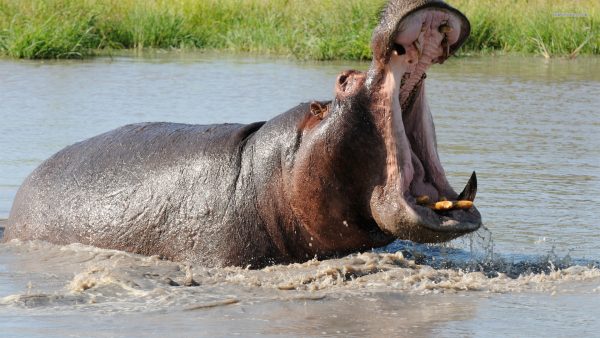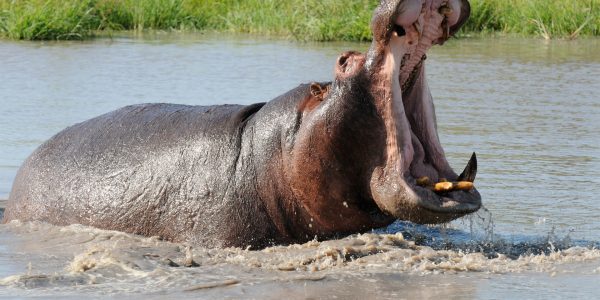
A serious meat shortage in the early years of the 20th century and a real problem with invasive water hyacinth plants led to the idea of importing hippopotamuses from Africa to grow and breed for food in the United States.
In the peak years of immigration to the United States, the nation had nowhere to expand to. After always finding the answer by heading further West, the USA ran out of room. Meanwhile, a Louisiana congressman named Robert Broussard decided he could solve the water hyacinth problem by bringing in hippos to suck up the plants. By the way, there still is a problem with water hyacinth in the swamps and bayous in the Southern parts of the United States. Kill two birds with one stone.
Broussard had a congressional hearing. He brought in an apple researcher, but also two rivals, enemies, who came together to promote the idea: Frederick Russell Burnham and Fritz Duquesne.
The boy scouts were founded in his image. He was the inspiration to Indiana Jones. He was a freelance adventurer who’d up and gone to Africa to fight for the British colonialists, and once described as the most complete human being who ever lived. Duquesne was a Boer, and the best way to describe him is probably con man, moving through life with different aliases, who also fought against the British in the second Boer war. Burnham once called him the “human epitome of sin and deception.” During the Boer war the two men were assigned to kill each other.
The Hippo ranching plan brought them together, with the opportunity for profit and more fame made the nemesis forget about old rivalries and killing orders, at least for a while. Broussard introduced H.R. 23261, commonly known as the hippo bill, “to appropriate $250,000 for the importation of useful new animals into the United States.” They cofounded the New Food Supply Society, and sent Duquesne on a fact-finding mission to Louisiana.
But the shipments never came. The ranching never started. Ego played a big part in it, with Duquesne feeling he was the only one doing any work, while more and more people were trying to take credit for the idea. Fears about the animals being too big to ship across the United States, and the cultivating of hippos turning into a local thing only, helped kill the momentum of the idea. From a indigenous way of feeding the nation while introducing a new species to North America, the Department of Agriculture simply decided to go with beef: Increase the available land, including turning the swamp areas to beef-friendly agricultural land.
What could have been? No one knows. It could have been a huge disaster, or perhaps something that changed the diet of a nation, and maybe the world at some point, although that’s a little bit excessive. Hippos aren’t exactly the easiest animals to control, not to mention extremely dangerous. They don’t reproduce as rapidly as cows, pigs, goats, sheep, and chickens, and take much longer than those animals to reach maturity, meaning it would take a very long time to have a hippo population that you could actually “farm”. It might not be difficult to hunt in the right conditions, but there’s a reason Africans never domesticated or farmed hippos.
For more on this fascinating tale, and especially on the life of Duquesne and Burnham, read American Hippopotamus / Image: Source
